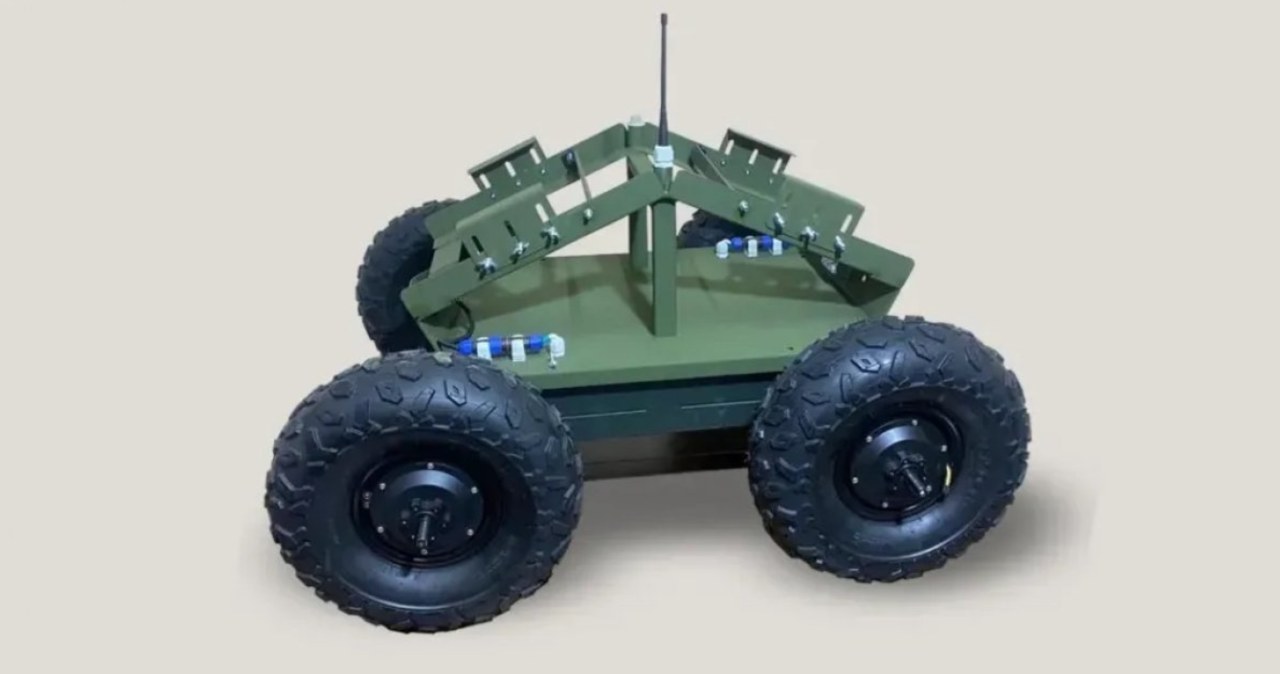
Polish President Admits That Major Infrastructure Project Has Dual Military Purposes
Authored by Andrew Korybko via Substack,
Polish President Andrzej Duda revealed in an interview that the Central Communication Port (CPK by its Polish abbreviation) transportation megaproject outside of Warsaw has dual military purposes.

He represents Poland’s prior conservative-nationalist government but remains in office despite the liberal-globalist opposition’s victory at the polls last fall since his term doesn’t expire till next year.
Duda’s latest claim makes Prime Minister Donald Tusk’s decision to pause and audit the CPK even more scandalous.
It was analyzed here at the time that he was economically subordinating Poland to Germany after having already done so on the political and military fronts, which lent credence to conservative-nationalist chieftain Jaroslaw Kaczynski’s warning late last year that Tusk is actually a “German agent”. Tusk then subordinated his country to its neighbor on the educational, judicial, and diplomatic fronts, all of which is being done on the pretext of implementing various “reforms”.
The end result is that Poland now plays an indispensable role in Germany’s “Fortress Europe” that was elaborated upon here, but Duda’s unexpected revelation about the CPK’s dual military purpose might reverse some of the tempo by putting grassroots and external pressure on Tusk to approve the CPK. Most Poles are in favor of this transport megaproject according to the latest polls that Duda’s interlocutor cited, while the US has an interest in using Poland as an anti-Russian military launchpad.
Here’s exactly what Duda said according to Google Translate:
“It is no secret to anyone, and I emphasize this: If a situation of potential danger for Poland were to occur, and the relocation of additional allied forces to Poland would be necessary to defend our territory, we do not currently have an airport that would be able to provide such support for the West to quickly come to Poland.”
This reminder is meant to imply that Tusk is harming NATO’s contingency plans for partisan reasons.
It’s also a dog whistle harkening back to what the former conservative-nationalist government’s Defense Minister claimed about his liberal-globalist predecessors regarding Tusk’s defensive plans during his prior two terms in office. Mariusz Blaszczak alleged that Tusk’s government planned to withdraw west of the Vistula River in the political fantasy that Russia invaded Poland until NATO reinforcements arrived and claimed to have the classified documents to prove it too.
Tusk’s previous time in power was marked by the arguably German-advised Russian-Polish rapprochement that was meant to create a “Europe from Lisbon to Vladivostok” during the halcyon era of Russian-EU relations. Those hopes were obviously dashed as everyone now knows, after which Tusk’s conservative-nationalist successors never wasted an opportunity to speculate that his pragmatic policy at the time was due to secret Russian influence over his government.
Blaszczak’s allegation should be seen in that light just like Duda’s reminder should too. Their conservative-nationalist movement sought to exploit political Russophobia in Polish society ahead of the elections to remain in power, but even though that didn’t work, they haven’t learned their lesson and are now trying to employ it yet again in their attempt to return to power one day. That said, it’s indeed important for Poles to be aware of both facts, after which they can make up their own mind.
Revealing allegedly classified details about outdated Polish national defense policy is one thing, while raising awareness of how possibly canceling the country’s largest megaproject in recent memory could impact national security in theoretical contingencies (not to mention killing lots of jobs) is another.
The first disclosure didn’t succeed in reshaping popular perceptions of the liberal-globalists whereas the second stands a greater chance of success of doing so even though it’s too early to conclude that it will.
Another point to pay attention to is that this isn’t the first time that Duda dropped a bombshell about a significant issue. Earlier in April, he told Lithuanian media that foreign companies own most of Ukraine’s industrial agriculture, thus confirming what had previously been reported but denied by the West. He therefore has a habit of being very candid about issues that he sincerely believes are of immense importance for Poland’s objective national interests.
Regardless of whatever the reader’s opinion might be about the likelihood of Duda’s scenario unfolding, which concerns Poland relying on the CPK to serve as the port of entry for a large-scale NATO intervention in the event of a Russian invasion, his point about that megaproject is militarily and strategically sound. It’ll be very difficult for Tusk to argue against it after he himself jumped on the Russia-bashing bandwagon since returning to power and continues fearmongering about its intentions.
He even jumped the shark last month by sensationally claiming that “we are in a pre-war era” that he compared to the run-up to World War II, thus suggesting whether sincerely or not that he supposedly believes that it’s possible for Russia to invade Poland in the coming future. If he ultimately decides to cancel the CPK despite Duda reminding him of its dual military purposes, then he’d discredit his previous fearmongering about Russia, which is the pretext for justifying Poland’s subordination to Germany.
Tusk’s hands might be tied, however, since the combination of grassroots and external (US/NATO) pressure might be enough to get him to reconsider weaponizing the CPK as part of his partisan war against his conservative-nationalist opponents under whom this megaproject was initiated. In any case, Duda inadvertently vindicated those Russian observers who long suspected that the CPK had dual military purposes, thus proving that they were right about Poland’s real plans all along.
Tyler Durden
Fri, 04/26/2024 – 06:30












